BREAKING NEWS
Hackers Crack Newegg

Hackers Crack Newegg. That’s what happened with NewEgg, the most popular electronics retailer since the collapse of Radio Shack.
Credit card and payment information was unfortunately skimmed from the popular electronics website between August 14 and September 18, 2018 putting millions of customers at risk. If you’ve ever shopped at Newegg between those dates, it’s best to consult with your credit card company and take appropriate measures.
Newegg unfortunately became victim to the same group that recently victimized British Airways and Ticketmaster. The group known as Magecart managed to inject a digital version of a credit card skimmer composed of 15 lines of JavaScript code into Newegg’s checkout page.

This code works within the background, not interrupting the checkout process, making Newegg and its customers unaware for more than a month, that it’s been skimming customer payment information and sending that info to a remote server. The remote server named neweggstats.com would look transparent to the user in case the activity appeared in the browser status bar. The domain is legit and it even has an SSL certificate.
Up to fifty million customers visit Newegg every month for their electronics needs so it’s safe to say that those affected by this breach could be at least seven digits. That’s a substantial number of info compared to Ticketmaster and British Airways where Magecart got away with the credit card data of over 300,000 victims.
The code shared remarkable similarities with the British Airways breach leading authorities to believe that Magecart is responsible. If it were this easy for Magecart to infiltrate three websites, who knows what other companies are affected.
Yesterday, we learned one of our servers had been injected with malware which may have allowed some of your information to be acquired or accessed by a third party… The malware was quite sophisticated and we are conducting extensive research to determine exactly what information may have been acquired or accessed and how many customers may have been impacted.
–Danny Lee, CEO, Newegg
The code Magecart used to skim credit card information is only 15 lines long, injecting that in there can only be done through malware which may have infiltrated the offices of Newegg and the two other companies. The malware then somehow gives Magecart access to the victim’s web server and injects its payload.
Knowing where to insert the code involved some sleuthing into Newegg’s checkout page which can easily be done with modern browsers. It seems browsers may need to include a mechanism to determine if a page holds or processes financial information and exempt them from being debugged by non-company employees.
…It’s becoming clear to the industry that these simple yet clever attacks are not only devastating, they’re becoming more and more prevalent. Newegg is just the latest victim,
–RiskIQ
Newegg has of course removed the nasty code and reached out customer’s potentially affected by the reach via email.
BREAKING NEWS
UK Fines Facebook over Cambridge Analytica Scandal
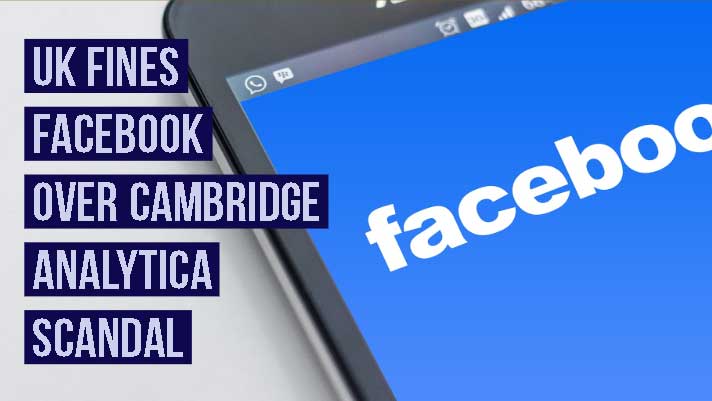
UK Fines Facebook over Cambridge Analytica Scandal. The UK has hit Facebook a fine of $645,000 for the Cambridge Analytica Scandal. It was revealed earlier this year that they had harvested the personal data of millions of profiles without the user’s consent and used it for political purposes. It is estimated that 87 million users were affected.
The fine has been enforced by the UK’s Information Commissioner’s Office (ICO) and was calculated using a pre-GDPR formula for data breach fines. Using the UK’s old Data Protection Act to fine Facebook, rather than GDPR they can only give a maximum penalty of £500,000, which is equal to what the social media giant earns every 18 minutes.
GDPR rules dictate a maximum fine of 4% of annual global turnover, which would be $1.6 billion. Unfortunately the the GDPR regulation wasn’t in place when the Cambridge Analytica story broke, coming into force in May 2018.
The UK investigation concluded that Facebook’s APIs had been allowing developers access to users information without them providing proper consent, for a long period of time between 2007 and 2014. Once they realized this loophole existed and patched it up, they did nothing to investigate the data compromised or ensure it was deleted.
[FACEBOOK] should have known better and it should have done better… We considered these contraventions to be so serious we imposed the maximum penalty under the previous legislation. The fine would inevitably have been significantly higher under the GDPR
Information Commissioner Elizabeth Denham said in a statement
Facebook has said they are reviewing the ICO’s findings and stated they “respectfully disagree” with some of the report, but admit they should have done more to protect users data. They also added that they found no evidence that British users profile information was shared with Cambridge Analytica.
BREAKING NEWS
Libssh Security Flaw leaves thousands of servers vulnerable to hijacking
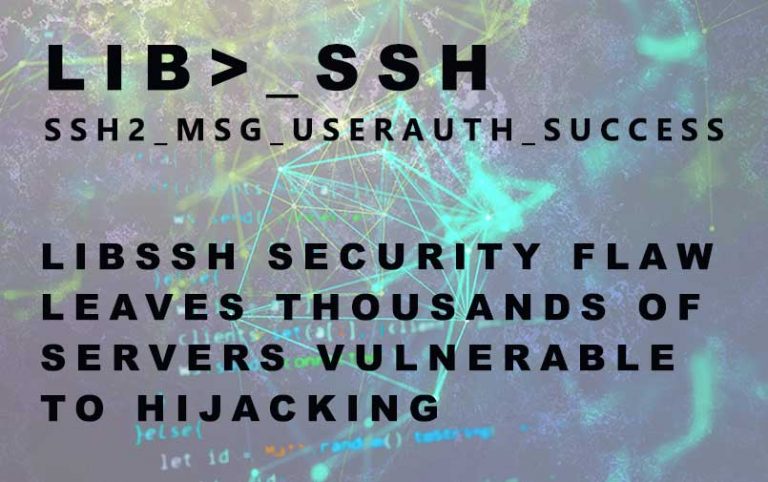
Libssh Security Flaw leaves thousands of servers vulnerable to hijacking. A security flaw in libssh leaves thousands, and potentially more, servers vulnerable to an attack. Libssh is a multiplatform C library which allows users to remotely execute programs, transfer files, manage public keys and use a secure and transparent tunnel.
The security flaw, discovered by Peter Winter-Smith from NCC Group, allows a hacker to bypass the authentication process on the servers and gain access to the system without having to enter a password.
An attacker can do this by sending the SSH server “SSH2_MSG_USERAUTH_SUCCESS” message instead of the “SSH2_MSG_USERAUTH_REQUEST” message that a server usually expects and which libssh uses as a sign that an authentication procedure needs to initiate.
The libssh system will treat this message to mean the authentication has already taken place and allow the attacker access to the server. The flaw (CVE-2018-10933) was released in January 2014 in release 0.6.0.
It’s estimated that the vulnerability currently affects at least 3000 servers, however this is based on a small search and the scale of the problem is not yet known. There were concerns that the popular version control site for developers to work collaboratively on projects, GitHub, was affected but they have released a statement denying this. Github claims the way they use libssh means they are not vulnerable to this exploit.
“We use a custom version of libssh; SSH2_MSG_USERAUTH_SUCCESS with the libssh server is not relied upon for pubkey-based auth, which is what we use the library for,”
a GitHub security official said on twitter
While we use libssh, we can confirm that https://t.co/0iKPk21RVu and GitHub Enterprise are unaffected by CVE-2018-10933 due to how we use the library.
— GitHub Security (@GitHubSecurity) October 16, 2018
The security flaw is only on the server side, meaning users who have a libssh based SSH client installed on their computer will be safe from potential attackers looking to exploit this vulnerability.
While there are currently no public exploits available for the vulnerability, they are easy to put together so these are likely to pop up online in the coming days and weeks.
The team at libssh released versions 0.8.4 and 0.7.6 yesterday to handle this bug.
BREAKING NEWS
Ad Clicker Disguised as a Google Photos App has been Hosted on Microsoft Store.
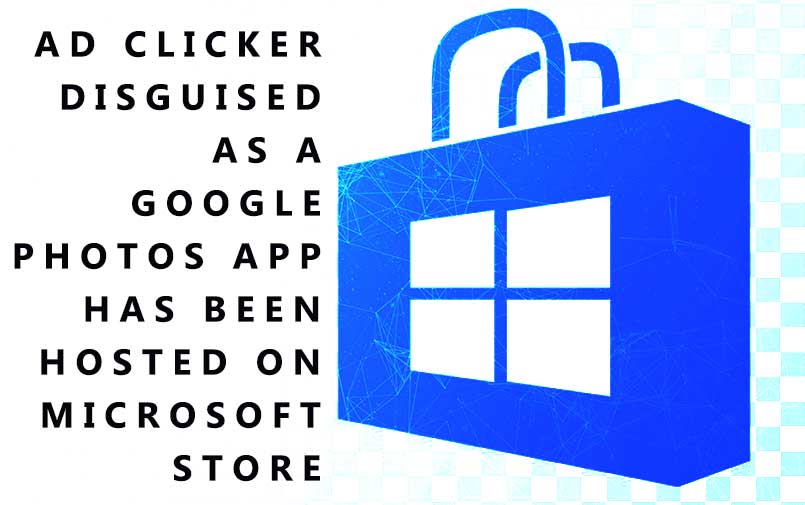
Ad Clicker Disguised as a Google Photos App has been Hosted on Microsoft Store.
A malicious app called “Album by Google Photos” was found to be hosted on the Microsoft store. The app was pretending to be part of Google Photos, but was in fact an ad clicker that generates hidden adverts within the Windows 10 Operating System.
The ad clicker app seemed credible to users because of its name, and also the fact it claimed to be created by Google LLC, Google’s actual Microsoft store account is Google Inc, but it looks unsuspecting to users. Microsoft came under some criticism for not realising the app was actually malicious software since the user reviews did highlight that the app was fake, with plenty of 1* reviews. One review states “ My paid Anti-malware solution detected several attempts to download malware by this app. Watch out”. The App was first released on the Microsoft store in May.
What did the application do?
The “Album by Google Photos” app is a Progressive Web Application (PWA), which acts as the front end for Google Photos and includes a legitimate login screen. Hidden in the app bundle is also an ad clicker which runs in the background and generates income for the app developers.
The app connects to ad URLS, and the ads were very similar to what users would see from typical adware, including tech support scams, random chrome extensions, fake flash and java installs and general low-quality sites.
Microsoft haven’t commented how this app managed to pass the Microsoft review process before ending up on the store. This is somewhat concerning since it could mean other malicious apps of a similar nature have flown under the radar and are still infecting user’s computers. We are waiting for Microsoft to comment on the issue.
-

 GAME REVIEW6 years ago
GAME REVIEW6 years agoTop Hacking Simulator Games Every Aspiring Hacker Should Play: Part 1
-

 DEALS6 years ago
DEALS6 years agoGreat Ethical Hacking Courses for Beginners
-

 BREAKING NEWS6 years ago
BREAKING NEWS6 years agoUS Online Retail Company suffered a data breach affecting 6.5 million customers
-

 HACKING NEWS6 years ago
HACKING NEWS6 years agoThe APT attacks hitting East Asia
-
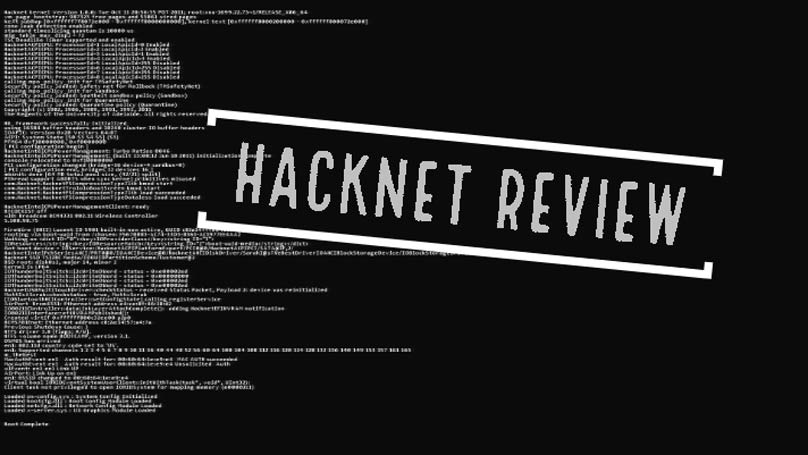
 GAME REVIEW6 years ago
GAME REVIEW6 years agoHacknet Review
-

 DEALS6 years ago
DEALS6 years agoMusic, Voice and Sound interface kits: What you need to know
-
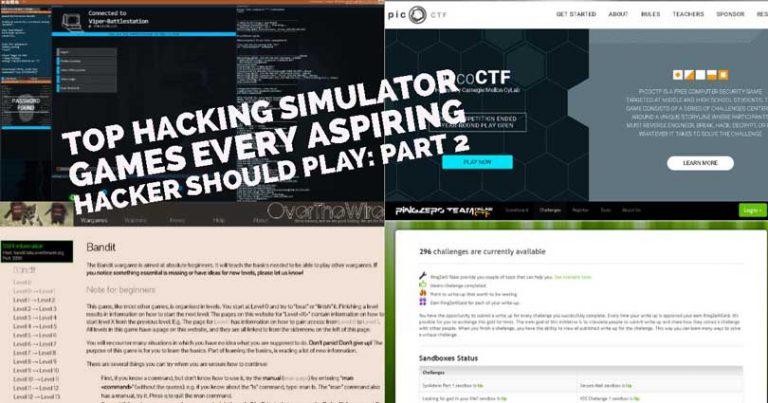
 GAME REVIEW6 years ago
GAME REVIEW6 years agoTop Hacking Simulator Games Every Aspiring Hacker Should Play: Part 2
-

 HOW TO6 years ago
HOW TO6 years agoHow To Become an Ethical Hacker – Beginners Guide
